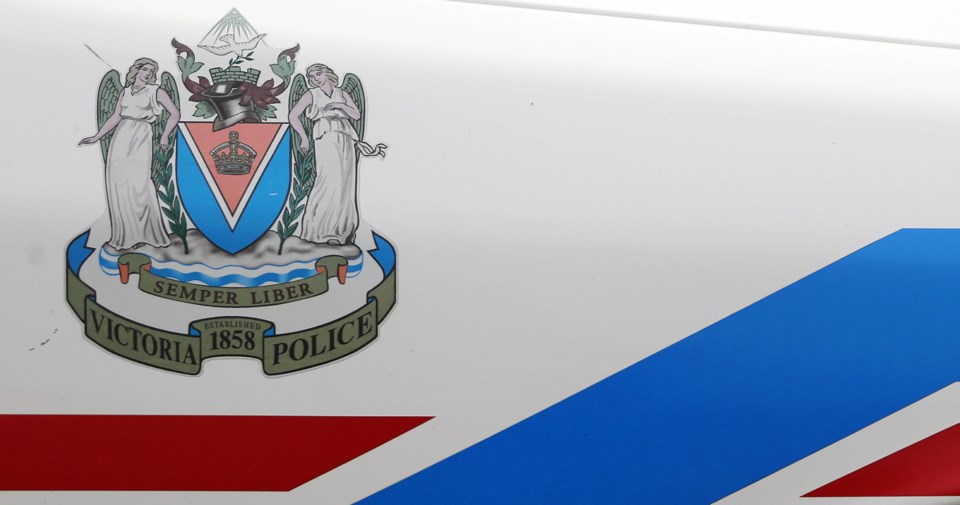Outreach workers say they are infuriated that Victoria police used “ambush tactics” on sex workers in an undercover effort to find evidence of human trafficking.
Last month, officers with the department’s special victims unit posed as a client and, through communication on escort-advertising websites, got the sex worker to meet at a hotel room.
When the sex worker arrived at the hotel room, a plainclothes officer and a social worker questioned the woman about whether she was being trafficked or sexually exploited. Officers spoke with eight women, the youngest of whom was 18.
Rachel Phillips, executive director of PEERS Victoria Resources Society, said sting operations which draw women to hotel rooms under false pretenses further stigmatize and marginalize sex work, which is often falsely equated with human trafficking.
“We’re very disappointed and perplexed by why they would do this,” said Phillips, who said Victoria police did not speak to PEERS before the operation, dubbed “Project No More.”
The tactic in which undercover police pose online as someone else in order to gain someone’s trust is called catfishing. Police commonly use it when trying to catch sexual predators or people sharing child-abuse images.
When it comes to human trafficking, the tactic has proven “ineffective in reaching women who are truly trafficked,” Phillips said. “You just scare sex workers, you undermine their trust in police when they actually need it. This is quite futile and actually harmful.”
Victoria police also interfered with sex workers’ ability to make money, which has already been severely limited by the pandemic, Phillips said. “Where they went wrong is that they thought it was OK to ambush a bunch of people because there might be a trafficker,” Phillips said.
Victoria police Const. Cam MacIntyre said in a statement the women “were immediately advised that they were free to leave and were under no obligation to speak with police.”
The department said most of the women remained in the room and spoke with officers. The officers provided information about support services and bags containing toiletries, clothes and gift cards for basic items, police said.
“On the first day of the project, the officers confirmed that one of the women they met with was brought to the hotel by a known human trafficker with previous convictions for criminal offences related to human trafficking,” MacIntyre said in a statement sent Friday. “Based on their interactions with the women they spoke with, officers believe that more than one of the women they met with was a victim of human trafficking.”
MacIntyre said the challenge in investigating human trafficking is that it is underreported.
“Victims are under the control of the trafficker,” he said. “They are subject to physical and psychological constraints which often prevents them from accessing outreach organizations. As a result, despite strong relationships with outreach organizations who support those who do sex work, VicPD investigators often learn about human trafficking through related investigations into fraud or drug trafficking. Officers have confirmed numerous instances where known human traffickers have operated in Victoria, and officers have spoken with numerous victims.”
The officers used the site LeoList, an online classified site for escorts that uses bitcoin and cryptocurrency, said Sophia Chivarella, operations manager for PEERS. Chivarella became aware of the operation after seeing sex workers post about it on social media and warning others about the tactic.
Chivarella said the fact that a sex worker is young or travelling to different cities is not evidence of human trafficking.
“Sex work is treated as a vulnerability in and of itself, as something that’s wrong in these people’s lives,” she said. “Sex work is a response to being in vulnerable situations.”
Police did not say whether the operation turned up evidence any of the women were being sexually exploited, but said the public should “be aware that human trafficking is present in Victoria.”
Some of the women were visiting from Montreal and Toronto, police said. “This is not uncommon, as many victims of sexual exploitation travel on a circuit of major cities throughout Canada.”
Phillips believes the police overstated the presence of human trafficking in Victoria.
In her six years with PEERS and working with hundreds of people in the sex industry, Phillips said, she has talked to five women who described being trafficked. “It’s not as commonplace as people think it is,” she said.
In 2017, the RCMP defended a national undercover operation which used similar tactics to interview sex workers in hotel rooms about human trafficking. The RCMP said at the time that, with the help of 57 police agencies, officers conducted 324 interviews with sex-trade workers in seven provinces which resulted in 14 arrests. In all, six sex workers were removed from exploitative situations, including two under the age of 18, the RCMP said.
In January, four people from Vancouver Island were arrested in Saskatchewan on suspicion of human trafficking.
Victoria police could not be reached to respond to the concerns raised by PEERS.
Phillips said she hopes to start a dialogue with the police about the undercover tactics.
— With files from the Canadian Press



